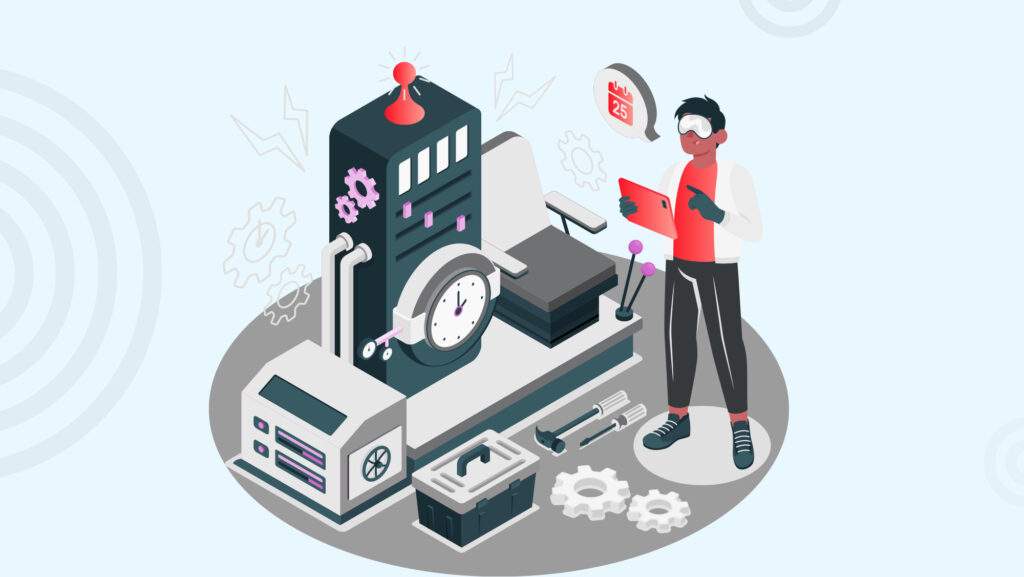How Can ERP Systems Transform Your Manufacturing Business?

Are you running a manufacturing business? If so, you might know that unlocking the potential of manufacturing processes has become a paramount goal for companies aiming to stay ahead in a highly dynamic market landscape. In this pursuit, Enterprise Resource Planning or ERP solutions have emerged as a catalyst for transformation.
This article highlights the far-reaching impact of ERP systems on small manufacturing companies, offering a comprehensive understanding of their profound influence.
Join us on this insightful journey as we explore several ways in which ERP solutions are reshaping the manufacturing industry and paving the way for a more agile and profitable future.
Let us get started:
What are ERP Solutions for Manufacturing?
ERP solutions for manufacturing integrate various aspects of a company’s operations, from procurement and inventory management to production planning and human resources, into a centralised platform.
By providing real-time data, enhanced visibility, and seamless communication between departments, ERP solutions empower manufacturing businesses to make data-driven decisions, while improving efficiency, and reducing operational costs.
Moreover, the best ERP systems for manufacturing solutions empower manufacturers to track raw materials and finished goods, monitor production schedules, and maintain optimal inventory levels. By improving resource utilisation and reducing wastage, these solutions contribute to cost savings and increased profitability. These solutions also provide a foundation for scalable growth in an ever-competitive manufacturing landscape.
Key Features of ERP Solutions for Manufacturing
- Production planning and scheduling: ERP systems help manufacturers plan and schedule production activities efficiently, whilst considering factors like demand, inventory levels, and resource availability.
- Inventory management: ERP solutions enable real-time tracking and management of raw materials, work-in-progress items, and finished goods, leading to better inventory control and cost reduction.
- Supply chain management: ERP systems facilitate smooth coordination with suppliers, optimising the procurement process and reducing lead times.
- Quality control: Manufacturers can implement quality control measures and track product quality throughout the production cycle with the help of ERP solutions.
- Financial management: ERP systems provide tools for managing financial transactions, budgeting, and reporting, allowing manufacturers to gain better financial visibility.
- Reporting and analytics: ERP solutions offer powerful reporting and analytics capabilities, helping manufacturers make data-driven decisions and identify areas for improvement.
- Collaboration and communication: ERP systems foster seamless communication and collaboration between different departments, promoting efficiency and teamwork.
How can you unleash the power of a Manufacturing ERP?
After implementing the best ERP for manufacturing, businesses can experience a wide range of positive outcomes that significantly impact their operations, efficiency, and overall success. Some of the key outputs and benefits they might observe are:
- Enhanced efficiency: ERP systems streamline and automate various processes, reducing manual work and minimising errors. This leads to improved productivity and faster turnaround times in production, procurement, and other areas.
- Real-time data insights: With access to real-time data, decision-makers can make informed and data-driven decisions. This results in better forecasting, demand planning, and inventory management, leading to optimised resource allocation.
- Improved inventory control: ERP solutions provide accurate and up-to-date information about inventory levels, helping businesses avoid stockouts and overstock situations. This leads to reduced carrying costs and more efficient use of warehouse space.
- Better supply chain management: ERP systems enable seamless collaboration with suppliers and partners, optimising the supply chain and reducing lead times, resulting in more reliable and timely deliveries.
- Enhanced quality control: By integrating quality management into the ERP system, manufacturers can closely monitor production processes, identify defects early, and maintain consistent product quality.
- Cost reduction: ERP solutions can help businesses identify cost-saving opportunities, eliminate redundancies, and improve overall cost efficiency.
- Compliance and reporting: ERPs facilitate compliance with industry regulations and provide accurate reporting, ensuring businesses meet legal requirements while adhering to industry standards.
- Improved customer satisfaction: Faster order processing, accurate delivery dates, and higher product quality contribute to better customer satisfaction and increased customer loyalty.
- Streamlined communication and collaboration: ERP systems foster seamless communication and collaboration among different departments, breaking down information silos and promoting a more cohesive and efficient work environment.
List of Best ERPS for Manufacturing Industry
Microsoft Dynamics 365 for Manufacturing:
Dynamics 365 for Manufacturing is a part of the Microsoft suite of business applications. It offers comprehensive functionalities for production planning, shop floor control, and inventory management.
Oracle NetSuite for Manufacturing:
NetSuite provides an all-in-one cloud-based ERP platform tailored for manufacturing companies. It offers features like demand planning, shop floor control, and production routing to streamline operations.
Workday ERP:
Workday offers a robust and cloud-based ERP solution designed to streamline manufacturing operations. With its user-friendly interface and extensive functionalities, it enables seamless management of financials, supply chain, HR, and more.
Epicor ERP:
Epicor’s ERP system caters specifically to manufacturing and distribution industries. It empowers manufacturers with end-to-end visibility, real-time data analytics, and advanced planning tools to enhance productivity and efficiency.
Genius ERP:
Genius ERP is a tailor-made solution for custom manufacturers. It focuses on automating complex manufacturing processes, such as engineering changes, job costing, and shop floor control, to drive productivity and innovation.
Infor Cloud Suite Industrial (SyteLine):
Infor’s Cloud Suite Industrial is a purpose-built ERP for discrete manufacturing. It provides advanced planning, scheduling, and shop floor control features to enhance operational efficiency and overall productivity.
Plex Manufacturing Cloud:
Plex offers a cloud-based ERP solution that focuses on process and discrete manufacturing industries. It provides end-to-end automation, quality management, and supply chain visibility for manufacturing companies seeking digital transformation.
These ERPs stand out for their industry-specific features, scalability, and ability to empower manufacturing businesses with the tools they need to stay competitive in a rapidly changing market.
However, Dynamics 365 manufacturing software in Australia is a worthwhile option, and companies are experiencing tremendous growth after using it. If you are interested in Dynamics 365 for the manufacturing industry, you can consult Dynamics Square experts for a free demo to explore this in action.
Conclusion
In summary, ERP solutions are the driving force behind a manufacturing revolution. By integrating processes, providing real-time insights, and enhancing collaboration, they optimise resource allocation, reduce costs, and boost productivity. Embracing ERP technology becomes essential for competitive success in the ever-evolving manufacturing landscape. It is undeniable that ERP solutions lead the way towards a more efficient, agile, and prosperous future for the industry.







